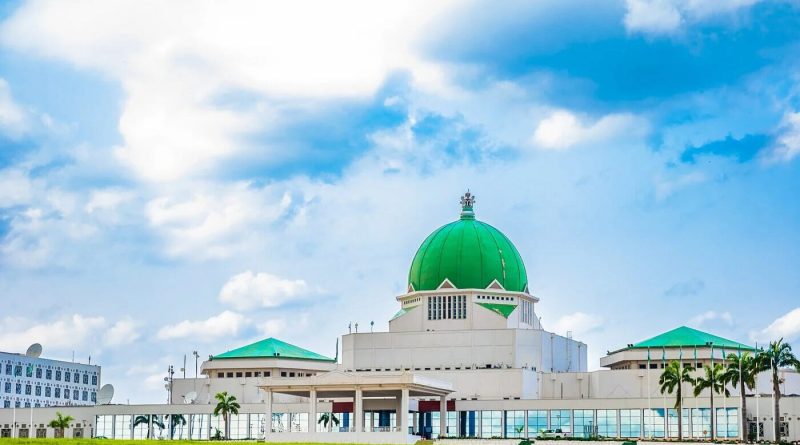Lawmakers move to strengthen security at National Assembly, hold public hearing
The Chairman of the House Committee on Internal Security, Garba Muhammad, has raised serious concerns over the growing insecurity within the National Assembly complex, warning that the trend poses a direct threat to Nigeria’s democracy and legislative stability if urgent measures are not taken.
Mr Muhammad made the remarks in his opening speech on Tuesday during a public hearing on a bill seeking to establish a Legislative Security Directorate, a proposed independent security framework to professionalise and strengthen internal security operations in the National Assembly.
The bill, titled “A Bill for an Act to provide for the Establishment and the Functions of the Legislative Security Directorate in the National Assembly; to provide for the Qualification and Condition of Service of the Sergeant-at-Arms and other Personnel of the Directorate,” is being considered by the House Committee on Internal Security.
Speaking to a hall filled with lawmakers, security experts, representatives from the Sergeant-at-Arms office, civil society representatives, and other stakeholders, Mr Muhammad painted a vivid picture of how the legislature has become increasingly vulnerable to threats that range from petty theft to potential terrorist attacks.
According to Mr Muhammad, the National Assembly, being an open institution that receives legislators, staff, executive officials, members of the judiciary, civil society organisations, journalists, protesters, and visitors daily, has become a prime target for criminal elements seeking to exploit the large influx of people.
“The National Assembly is going through a lot of security challenges,” he lamented. “We have experienced car thefts, motorcycle thefts, vandalism, fake identity cards, unwanted visitors accessing the complex without documentation, and petty trading that makes the National Assembly look like a small market.”
He further revealed that the legislature has received direct threats from terrorists planning to bomb the complex, as well as from protesters threatening to lock up the National Assembly. “Legislators are exposed to threats from constituents and other individuals who gain easy access to their offices without formal appointments,” he added.
Mr Muhammad warned that if these security lapses persist without a coordinated and institutionalised response, Nigeria’s legislative process could be severely disrupted.
“If proper measures are not taken, legislative activities in the National Assembly could be truncated,” he warned. “And if that happens, there will be no representation, no oversight, no annual budget, no plenary at all and that will destabilise democracy and the stability of the nation at large.”
The lawmaker emphasised that effective security management within the legislature demands a “total approach,” one that integrates intelligence, technology, personnel training, and standardised procedures tailored to the unique environment of a parliamentary institution.
Mr Muhammad described the proposed Legislative Security Directorate as a crucial step toward adopting global best practices in parliamentary security management.
The Directorate, once established, will professionalise the role of the Sergeant-at-Arms and introduce clear qualifications, training standards, and operational guidelines for security personnel assigned to the National Assembly.
“This bill is very important because it seeks to address all the challenges as aforesaid and adopt world best practices of parliamentary security procedures and architecture,” he stated.
The move, according to him, is also meant to strike a delicate balance between accessibility and protection, ensuring that the National Assembly remains open and people-oriented without compromising the safety of lawmakers, staff, visitors, and public property.
Mr Muhammad urged state Houses of Assembly across the country to emulate the federal legislature’s effort by instituting similar security reforms within their own complexes.
“The need for effective security measures in the National Assembly cannot be overemphasized because Parliament must remain accessible to the public to uphold democratic values,” he said. “However, this bill is committed to ensuring the best security architecture in the National Assembly, to protect legislators, staff, visitors, and property. I also want to admonish our States Houses of Assembly to imbibe the same.”
A troubled history of security lapses
The proposed bill comes at a time when insecurity remains a pervasive issue across the country, from cases of insurgency and terrorism to kidnappings and organised crime and when public institutions are increasingly under scrutiny for their vulnerability.
The National Assembly, being the symbolic and operational nerve centre of Nigeria’s democracy, has not been spared.
In April 2018, suspected political thugs stormed the Senate chamber and snatched the mace, the symbol of legislative authority, in an audacious daylight attack.
Similarly, a PREMIUM TIMES special investigation published in 2025 revealed how criminals were stealing manhole covers and vandalising critical infrastructure within the National Assembly complex, a breach that security officers described as both embarrassing and dangerous.
In June 2025, there was also a report of a disturbing incident where a decomposing body was found inside a vehicle parked within the Assembly premises, an event that shocked staff and lawmakers alike, again raising questions about access control and surveillance.
If the bill is passed, it will not only redefine the security operations within Nigeria’s Parliament but may also serve as a model for other democratic institutions across Africa struggling to maintain openness in the face of rising insecurity.

